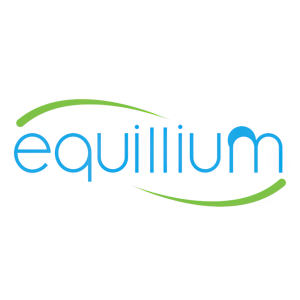Equillium Announces Interim Safety Data and Reduction in Proteinuria for Lupus Patients Treated with Itolizumab in the EQUALISE Study Presented at the ACR Annual Meeting
Subgroup analyses of lupus patients (without lupus nephritis) that had elevated baseline proteinuria and albuminuria shows reduction of
Itolizumab was well tolerated at doses ranging from 0.4 to 2.4 mg/kg
In the interim exploratory analysis of the TYPE A portion of the study where patients were dosed subcutaneously (SC) once every two weeks (Q2W), the data showed that for SLE patients with baseline urine protein-to-creatinine ratios (UPCR) > 100 mg/g (N=16) and > 200 mg/g (N=6), there was a decline of
“These early results in patients with SLE treated with itolizumab are quite promising,” said
The Type A study portion of the Phase 1b EQUALISE study is a multiple ascending-dose trial involving 35 SLE patients to evaluate the safety, tolerability, pharmacokinetics, pharmacodynamics, and clinical activity of SC doses of itolizumab every two weeks. The Type B portion of the EQUALISE study will evaluate up to 20 newly diagnosed or refractory lupus nephritis (LN) patients who will be treated with itolizumab dosed at 1.6 mg/kg SC Q2W for up to 24 weeks.
In separate posters at ACR,
“As we generate more data in multiple settings, our conviction in the versatility, potency and potential clinical impact of itolizumab grows,” said
To view the poster presentations, visit the Publications & Presentations page of Equillium’s website: https://www.equilliumbio.com/technology/publications-presentations/default.aspx.
About Systemic Lupus Erythematosus (SLE) / Lupus Nephritis (LN)
Systemic lupus erythematosus is an autoimmune disease in which the immune system attacks its own tissues, causing widespread inflammation and tissue damage in the affected organs. It can affect the joints, skin, brain, lungs, kidneys, and blood vessels. Lupus nephritis is a serious complication of SLE, occurring in approximately
About the EQUALISE Study
The EQUALISE study is a Phase 1b open-label proof-of-concept multiple ascending-dose clinical study of itolizumab in patients with systemic lupus erythematosus and lupus nephritis. The study is evaluating the safety and tolerability of subcutaneous delivery of itolizumab in patients with systemic lupus erythematosus and lupus nephritis. The treatment period for patients with systemic lupus erythematosus is two weeks in duration, while treatment for patients with active proliferative lupus nephritis is 24 weeks in duration.
About Itolizumab
Itolizumab is a clinical-stage, first-in-class anti-CD6 monoclonal antibody that selectively targets the CD6-ALCAM signaling pathway to selectively downregulate pathogenic T effector cells while preserving T regulatory cells critical for maintaining a balanced immune response. This pathway plays a central role in modulating the activity and trafficking of T cells that drive a number of immuno-inflammatory diseases.
About
For more information, visit www.equilliumbio.com.
Forward Looking Statements
Statements contained in this press release regarding matters that are not historical facts are "forward-looking statements" within the meaning of the Private Securities Litigation Reform Act of 1995. Forward-looking statements may be identified by the use of words such as "anticipate", "believe", “could”, “continue”, "expect", "estimate", “may”, "plan", "outlook", “future” and "project" and other similar expressions that predict or indicate future events or trends or that are not statements of historical matters. Because such statements are subject to risks and uncertainties, actual results may differ materially from those expressed or implied by such forward-looking statements. Such statements include, but are not limited to statements regarding the potential benefit of treating patients with aGVHD, uncontrolled asthma, or lupus/lupus nephritis with itolizumab, Equillium’s plans and expected timing for developing itolizumab including the expected timing of initiating, completing and announcing further results from the EQUATE, EQUIP, and EQUALISE studies, the potential for any of Equillium’s ongoing or planned clinical studies to show safety or efficacy, statements regarding the impact of new leadership team members, Equillium’s anticipated timing of regulatory review and feedback, Equillium’s cash runway, and Equillium’s plans and expected timing for developing itolizumab and potential benefits of itolizumab. Risks that contribute to the uncertain nature of the forward-looking statements include: uncertainties related to the abilities of the leadership team to perform as expected; Equillium’s ability to execute its plans and strategies; risks related to performing clinical studies; the risk that interim results of a clinical study do not necessarily predict final results and that one or more of the clinical outcomes may materially change as patient enrollment continues, following more comprehensive reviews of the data, and as more patient data become available; potential delays in the commencement, enrollment and completion of clinical studies and the reporting of data therefrom; the risk that studies will not be completed as planned; Equillium’s plans and product development, including the initiation and completion of clinical studies and the reporting of data therefrom; whether the results from clinical studies will validate and support the safety and efficacy of itolizumab; changes in the competitive landscape; uncertainties related to Equillium’s capital requirements; and having to use cash in ways or on timing other than expected and the impact of market volatility on cash reserves. These and other risks and uncertainties are described more fully under the caption "Risk Factors" and elsewhere in
View source version on businesswire.com: https://www.businesswire.com/news/home/20211102005311/en/
Investor Contact
Vice President, Investor Relations & Corporate Communications
619-302-4431
ir@equilliumbio.com
Media Contact
Aljanae Reynolds
areynolds@wheelhouselsa.com
Source:







